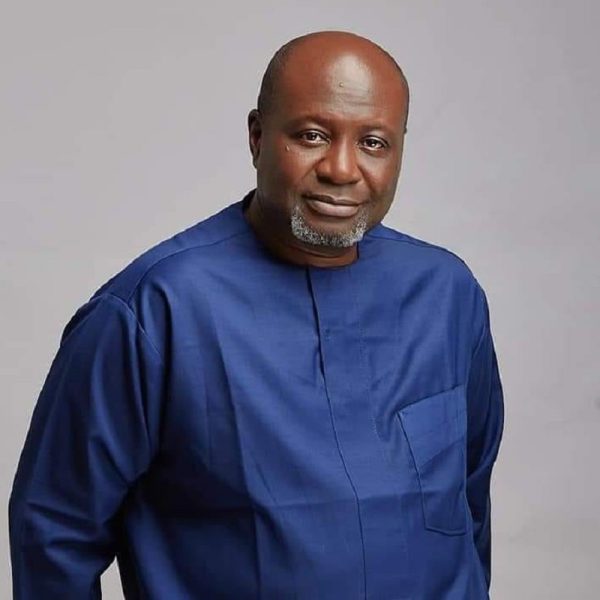Panam Percy Paul, born Bakulipanam Percy Paul Mokungah, is a name that resonates deeply within Nigeria’s gospel music landscape. Over the years, he has become one of the most celebrated pioneers in the genre, known for his extraordinary ability to infuse African rhythms into contemporary Christian music. With a career that spans more than forty years, Panam has significantly shaped the Nigerian gospel scene. His music embodies a deep sense of spirituality, a connection to African cultural roots, and a passion for spreading the message of faith. Among his many influential works, one song that stands out is “The African Way,” a timeless classic known for both its powerful message and its unique musical style.
Read more about Throwback Thursday
Brief History of the Artist and “The African Way”
Born in Jos, Plateau State, Nigeria, in 1957, Panam Percy Paul was raised in a family that instilled strong Christian values in him. His father, a pastor, played a major role in shaping his early exposure to both Christianity and music. Panam’s love for music began in his youth, and by the 1970s, he had already started making waves in the Nigerian gospel music scene. By the 1980s, his influence had grown immensely, and he was recognized as one of the foremost voices in gospel music.
“The African Way,” released in 1990, became one of his most memorable songs. Its blend of traditional African instruments and contemporary gospel music signalled a new era in gospel music—a celebration of African identity woven seamlessly into the message of the gospel.
Inspiration Behind “The African Way”
The inspiration for “The African Way” stemmed from Panam Percy Paul’s desire to harmonize the richness of African culture with the universal message of the gospel. In an era dominated by Western influences in Christian music, Panam sought to craft a song that was authentically African and spiritually enriching. He felt there was a need for Africans to worship God in ways that resonated with their unique cultural identity (Akombo, 2021). “The African Way” stands as an anthem of African pride, grounded in the Christian faith, with its rhythm, instruments, and lyrics all reflecting the heartbeat of Africa.
This sentiment is deeply rooted in the biblical command found in Psalm 150:6 (NLT), “Let everything that breathes sing praises to the Lord!” The song calls for Africans to lift their voices in praise to God, using the very elements of their culture that make them distinct. It mirrors the biblical principle that every nation and people group are invited to worship God through their languages, music, and cultural expressions.
Sign up for the Connect Nigeria daily newsletter
Positive Impact from Release Until Today
Upon its release, “The African Way” quickly became a favourite across churches in Nigeria and beyond. The song resonated not only with Christians in Nigeria but also across Africa. It captured the essence of cultural pride while encouraging worship in a way that was relatable to the African Christian experience. Many churches embraced the song as a staple for worship sessions, particularly those that wanted to integrate more African elements into their services. As Johnson (2022) highlights, Panam Percy Paul’s music fostered a sense of inclusion, allowing African Christians to freely express their faith through their cultural heritage.
A major contribution of “The African Way” was its encouragement of the use of African instruments in Christian worship. Before its release, many African churches largely relied on Western instruments such as pianos and guitars. The song challenged this norm, bringing traditional African instruments like the talking drum, kora, and shekere into mainstream Christian worship. This shift led to a renewed appreciation for African musical traditions within the church, proving that one can be both deeply African and devoutly Christian (Horton, 2021).
Furthermore, “The African Way” played a crucial role in unifying Christians across Africa. Its message transcended ethnic and national divides, helping African Christians to see themselves as part of a shared cultural and spiritual identity. This impact continues today, with contemporary gospel artists like Nathaniel Bassey and Dunsin Oyekan acknowledging Panam Percy Paul as a key influence in their use of African musical styles in gospel music (Reed, 2023).
Social media has also been instrumental in keeping the legacy of “The African Way” alive. Platforms such as YouTube and Facebook have allowed new generations to discover the song and appreciate its timeless message. Gospel music websites, blogs, and forums often reference the song as a groundbreaking piece of African gospel music, celebrating its role in promoting cultural pride within the faith community. Moreover, its lyrics and message continue to be shared across social media, reminding believers of the importance of cultural expression in worship.
Register to attend the CN Business Mixer
Conclusion
“The African Way” by Panam Percy Paul remains one of the most enduring and influential songs in African gospel music. Released in 1990, it marked a turning point in the history of Nigerian gospel music, celebrating African culture while simultaneously proclaiming the gospel. The song’s positive impact—from encouraging the use of African musical elements in worship to promoting unity among African Christians—continues to resonate with audiences today. As Egbunu (2022) notes, Panam Percy Paul’s ability to merge faith and culture has left an indelible mark on African gospel music, ensuring that “The African Way” will continue to be a blessing to many generations to come.
Got a suggestion? Contact us: [email protected]

